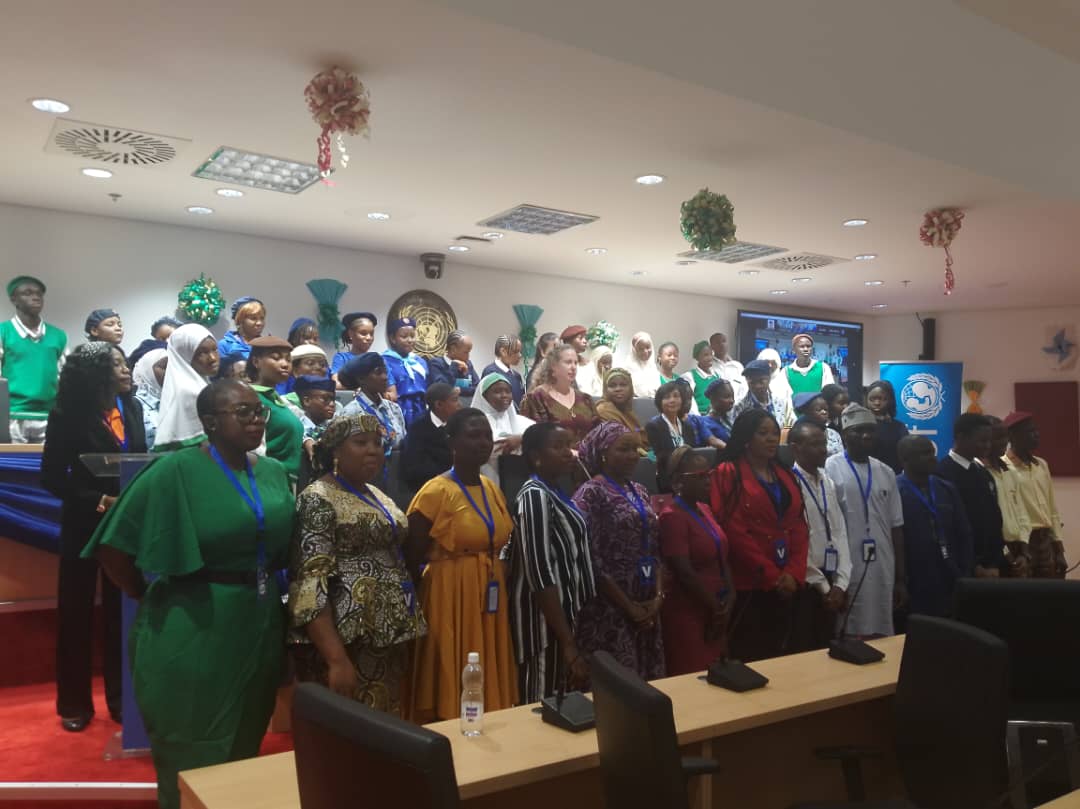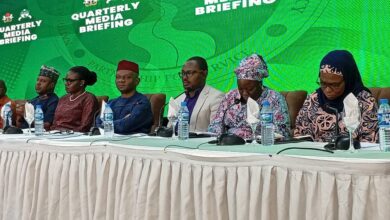110m Nigerian Children At Risk Of Environmental Disasters, Says UNICEF

The United Nations Children’s Fund (UNICEF) has ranked Nigeria, as the second most vulnerable country worldwide in terms of children’s exposure to climate change, adding that over 110 million Nigerian children were at risk of being confronted with the harsh realities of rising temperatures, flooding, drought, and severe storms.
This was part of discussions held on Monday, November 20, 2023, to commemorate this year’s World Children’s Day in Abuja.
The 2023 World Children’s Day with the theme: “For every child, every right” focused on child rights amidst the escalating climate crisis.
Events across the country saw children from various regions, including Abuja, Kano, Lagos, Enugu, Sokoto, and Maiduguri, leading discussions on the significant impact of climate change on their lives and futures.
The discussions covered various critical issues, including the direct health impacts of climate change on children, such as increased physical dangers, waterborne diseases, and malnutrition.
The event also shed light on the alarming rate of child displacement due to environmental disasters, with 650,000 children displaced from 2016 to 2021 due to floods.
A report from the global children’s organisation stated that “Nigeria, as the second most vulnerable country worldwide in terms of children’s exposure to climate change was faced with severe challenges. Over 110 million Nigerian children are at risk, having confronted the harsh realities of rising temperatures, flooding, drought, and severe storms”.
Speaking on how Nigeria’s response to climate change should be, Director General of the National Council on Climate Change, Dr. Salisu Dahiru said,“ as one of the countries that suffer the greatest exposure to adverse climate impacts, Nigeria’s response to climate change must be swift and holistic, accounting for the needs of vulnerable people, including children and women, at the decision-making level, as well as in the implementation of the National Climate Change Action Plan”.
On her part, UNICEF Representative in Nigeria, Cristian Munduate noted that the Children’s Day celebration was, “a crucial platform for our children, the most affected by climate change, to voice their concerns and experiences. Their input is essential in shaping our collective path towards a sustainable and resilient future”.
The celebration also highlighted collaboration efforts between the Government, development partners, Civil Society Organisations (CSOs), and the private sector, focusing on advocacy, partnerships, and climate education.





